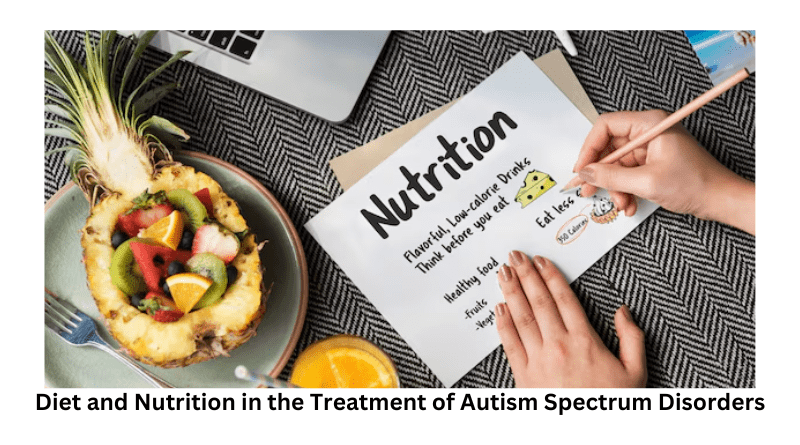The Function of Diet and Nutrition in the Treatment of Autism Spectrum Disorders
A range of neurodevelopmental disorders that affect behavior, social interaction, and communication are together referred to as autism spectrum disorders (ASD). One important topic that is receiving more attention as we learn more about these illnesses is how food and nutrition may help manage the symptoms of ASD. Families, caregivers, and medical professionals looking for holistic ways to help people with ASD are increasingly interested in investigating the link between what we eat and how it impacts people with ASD.
Overview of Autism Spectrum Disorders
There are many different disorders that fall under the umbrella of ASD, each with its own special traits and difficulties. Every instance is unique, since illnesses ranging from Asperger’s syndrome to widespread developmental problems impact people differently. ASD has become much more common in recent years, which highlights the necessity for all-encompassing strategies to help and manage people who are impacted.
Recognizing the Connection between ASD and Nutrition
More and more research points to a link between ASD symptoms and diet. Numerous dietary components, including as gluten, casein, and certain nutrients, have been investigated for their effects on the behavior, mental health, and general well-being of people with ASD. Gaining insight into these factors paves the way for customized nutritional therapies.
Important Nutritional Strategies for Managing ASD
Diets devoid of gluten and casein have drawn interest among the many strategies because they may help reduce the symptoms of ASD. Furthermore, it has been demonstrated that adding Omega-3 fatty acids and making sure that enough important micronutrients are consumed will promote behavior and cognitive performance in people with Multipathy Approach for Autism Treatment.
The Gut-Brain Connection in ASD and Dietary Implications
The intricate relationship between gut health and brain function has sparked interest in exploring the role of probiotics and prebiotics in managing ASD symptoms. Studies suggest that optimizing gut health might positively influence behavior and cognition in individuals with ASD, emphasizing the importance of dietary choices.
Implementing Dietary Changes for People with ASD Can Be Difficult
Making dietary adjustments presents distinct difficulties, particularly when it comes to the sensory problems that people with ASD sometimes encounter. For people to successfully integrate new diets into their routine, helpful advice and gradual adjustments are essential.
Expert Advice and Assistance with Dietary Interventions
Working with dietitians and nutritionists who specialize in ASD provides individualized advice on how to modify meals to suit specific requirements. Their knowledge facilitates problem-solving and guarantees a healthy, well-balanced diet.
Evidence and Research in Favor of Nutritional Interventions
The potential of dietary treatments to significantly affect symptoms of ASD is demonstrated by scientific research and success stories. Examining these results gives families and caregivers thinking about dietary adjustments important information.
Integrating Nutrition with Other Therapies in a Holistic Approach
A holistic strategy to addressing ASD is provided by combining dietary modifications with other therapy, such as behavioral and educational interventions, even though nutrition plays a crucial role.
Possible Hazards and Myths Regarding Dietary Interventions
Giving families and caregivers accurate information about dietary interventions requires addressing safety issues and clearing up common misconceptions.
Useful Advice for Caregivers and Families
For implementation to be effective, family and caregivers must be equipped with useful tips on how to prepare wholesome meals and create a welcoming environment for people with ASD.
Continued Research and Development’s Significance
The necessity of keeping up with current trends is emphasized by the ongoing research in nutritional treatments, which keeps revealing new opportunities and developments.
Individual Narratives: Families’ Experiences Putting Dietary Changes Into Practice
A human perspective on controlling ASD via nutrition is provided by real-life stories and the experiences of families making dietary adjustments. These stories provide motivation and insights into the struggles and victories they encounter.
